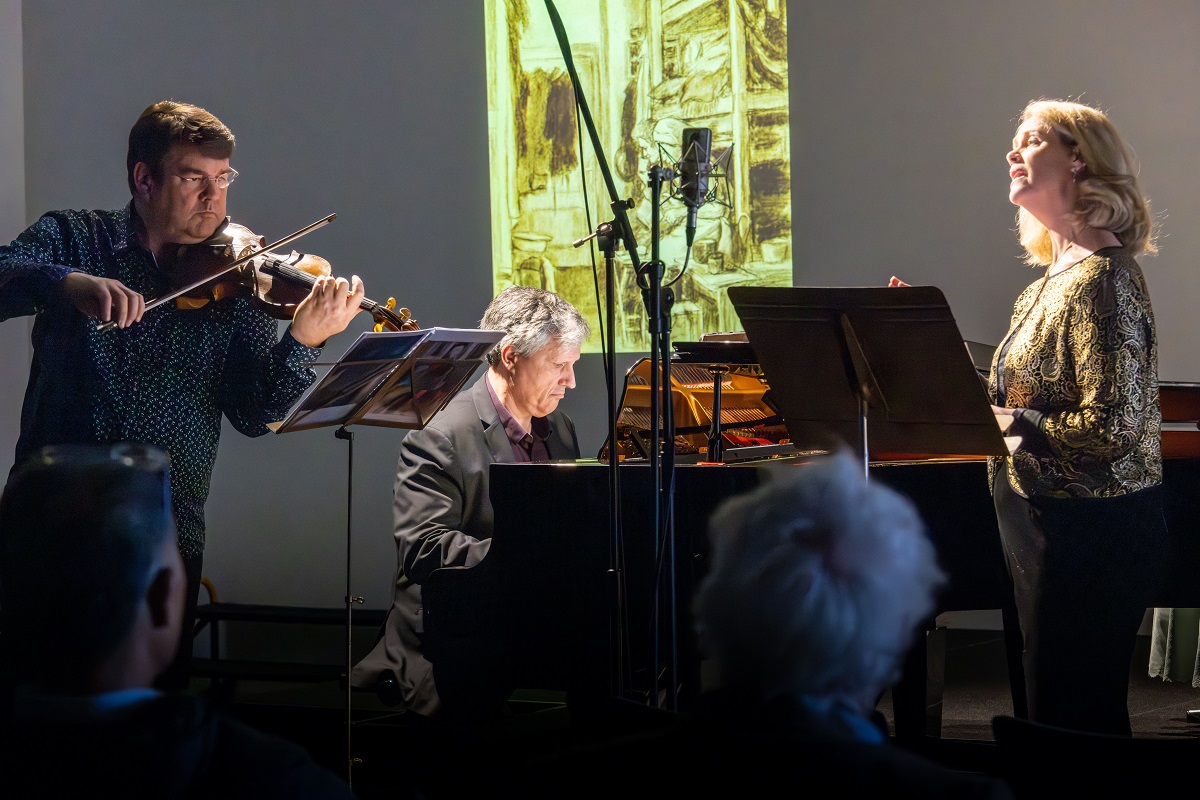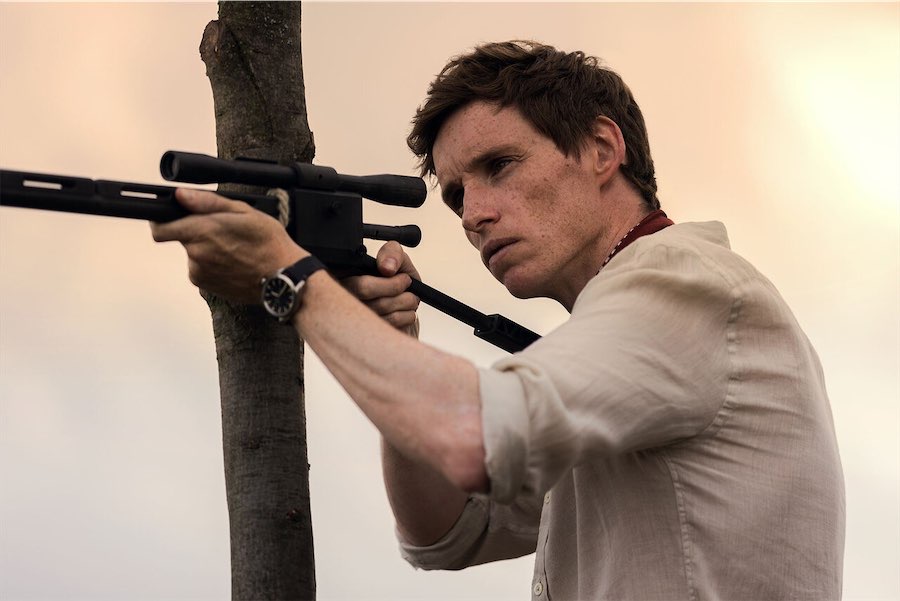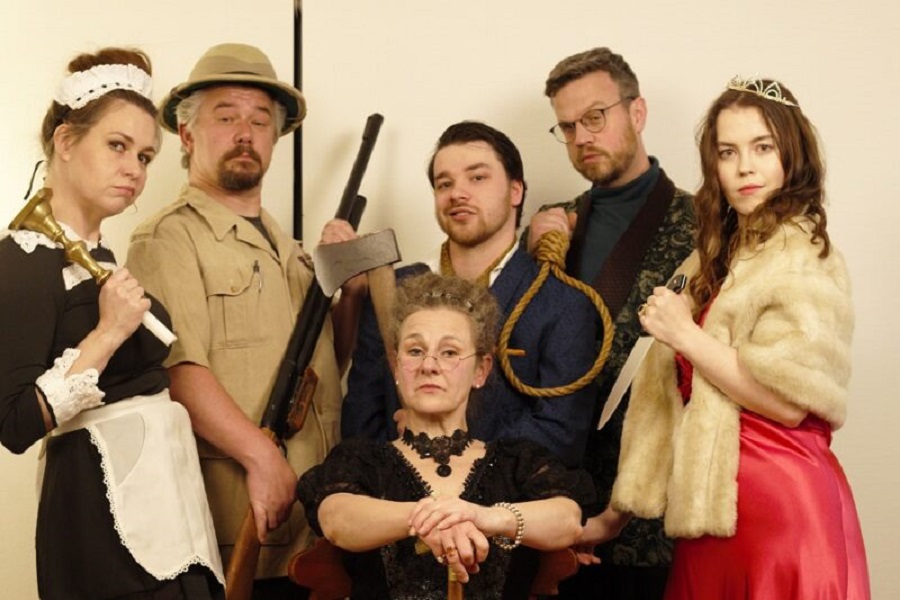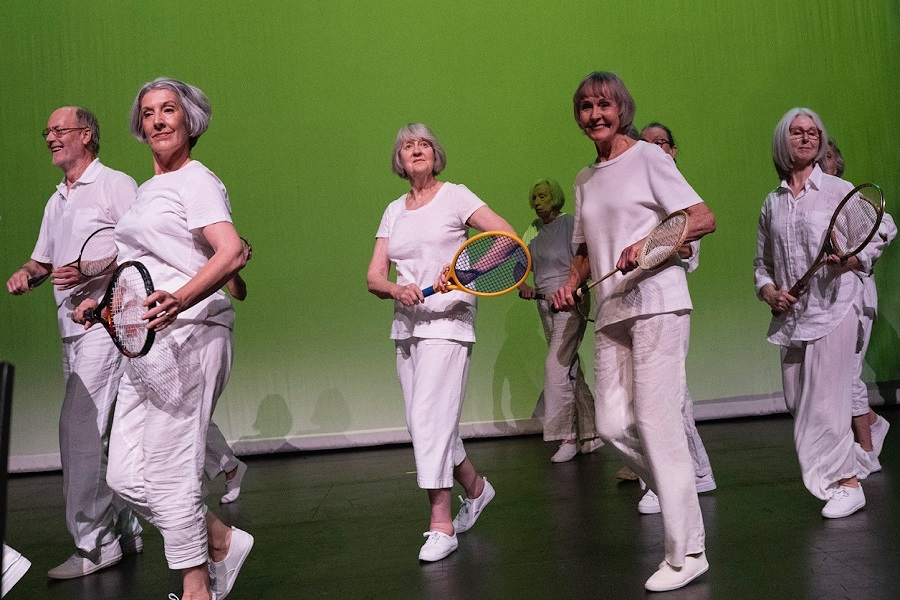
Music / Lost Love Songs, Christina Wilson, mezzosoprano; Alan Hicks, piano, and Chris Latham, violin. At Australian Centre for Christianity and Culture, Barton, July 28. Reviewed by ROB KENNEDY.
In the midst of countless horrors that unfolded during World War II, between July and October 1944, untold numbers of musicians and artists perished in the camps of Terezin and Auschwitz.
Christina Wilson, mezzosoprano; Alan Hicks, piano, and Chris Latham, violin, who performed in this recital, brought back to life music and songs of many forgotten musicians.
With accompanying images by Felix Nussbaum, Charlotte Salomon, Otto Freundlich and Malva Schalek, this program of Lost Love Songs set a sad, yet colourful tone for a range of unheard yet sublime songs.
Opening with Ein Jüdischen Kind, for voice, violin and piano, by Carlos S. Taube (1897-1944), this delicate work, sung in German, told a universal story of conflict that left children without a home.
The Mazurk III, for solo piano by Josima Feldshuh (1929-1943), held a beguiling tune that had a repeated first note of every few bars, which made for a memorable wordless song.
Works for piano and violin and a selection of songs in French, German and Dutch by Leo Kok (1883-1992) followed. The piano and violin piece was a sad and dark affair with a touch of light hidden within. The four songs were gentle, loving works that contained strong elements of profound beauty and also some excellent writing.
Then pieces for voice, violin and piano by Erwin Schulhoff (1894-1942). Titled Three Mood Images, his Op.12, had an airy lightness mixed with a touch of impressionism. All works were delicate, sensitive and deeply moving that left their mark.
Schulhoff’s folksongs and dances for piano and voice followed. All with animated titles, such as Climb the Wagon and Grazing Oxen, offered a light-hearted atmosphere. Sung in English, from Czech, Wilson and husband Hicks gave a fittingly animated performance.
After the interval, a selection of songs and piano solos by James Simon (1880-1944). They began with his Lamento in Yemenite style arranged for violin and piano. A deeply sad work. Then, nine songs that crossed a wide range of emotions, which were all written as love letters to the love of his life, his wife. They contained a quite profound musical language of great depth and sincerity.
The final songs, for all three performers, by Heinz Lewin (1888-1942), were from films and operettas. With a swing, these pieces sounded out the more lively and visual aspects of the art and life of the time before the great heartache of World War II.
Latham has organised another emotional concert as part of a series with the Australian War Memorial. Each one has documented so much profound music, art and people who were killed through a horrendous time in our human story.
Who can be trusted?
In a world of spin and confusion, there’s never been a more important time to support independent journalism in Canberra.
If you trust our work online and want to enforce the power of independent voices, I invite you to make a small contribution.
Every dollar of support is invested back into our journalism to help keep citynews.com.au strong and free.
Thank you,
Ian Meikle, editor




Leave a Reply